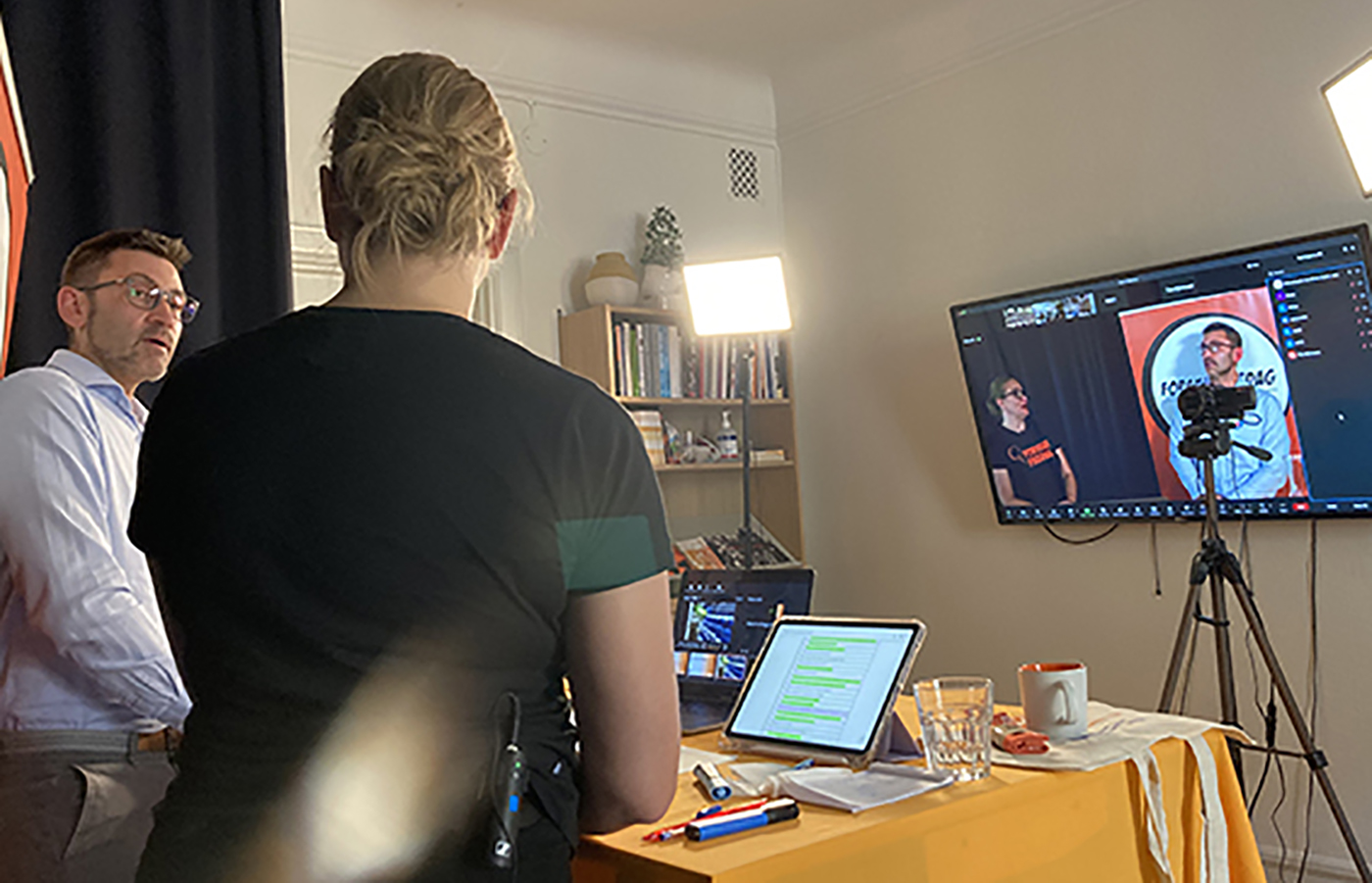Research talks with upper secondary schools
The last week in September, a Science Festival called Researchers' Week (ForskarFredag) was celebrated in Sweden and elsewhere in Europe. The aim is to draw attention to science and what it is like to be a researcher, mainly to a younger audience.

The research talks with students were broadcasted from a studio and the students participated from their classrooms.
The Swedish 3Rs Center met students from upper secondary school together with researchers to talk about the 3Rs. The subjects varied from drug development, risk assessment, neuro science, research on wild animals and the zebrafish model in research.
The students were eager to share their view on animal research and give their own suggestions on how animal models could be replaced in the future. They reflected on cell modelling, computer modelling and AI – methods that are already used for this purpose. They even shared their thoughts on ethics, animal rights versus human rights. They often asked about the ethical review, the legislation, and many of them are interested in animal welfare and refinement. Some of them wanted to know more about the road to become a researcher, about PhD studies and the thrill of exploring the unknown.
Still, we quite often need to explain that it is actually legal to perform animal experiments and the majority of students seem to think that that all kinds of cosmetics are tested on animals. The EU ban on testing cosmetics on animals and to marked animal tested cosmetics, that has been in place since 2013, is not well known.
What does the researchers think?
One of the researchers that met 250 students was Lars Bräutigam from Karolinska Institutet and the National Committee. He is positive about the interaction:
— I had great fun! The students were committed and active; they had many smart questions, which I really had to reflect upon before answering. I learned a lot from the discussions and the students’ reflections. They wanted to know more about how to become a researcher and about the ethical review of animal experiments. Some of them were surprised that one can use zebrafish in the development of medical drugs.
— It was fun to talk about how we implement the 3Rs in our daily work with the zebrafish at Karolinska.
Many of the attending teachers have participated with classes previous years, so they tend to come back to our talks.
All together, we met more than 500 students from schools all over Sweden. The research talks were arranged in collaboration with the Swedish association Public & Science (Vetenskap & Allmänhet), RISE, Karolinska Institutet and the National Veterinary Institute (SVA).